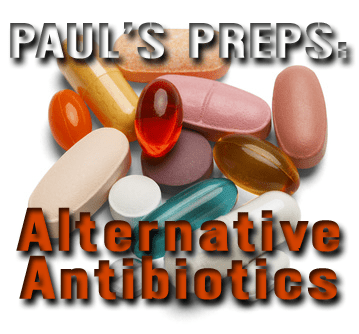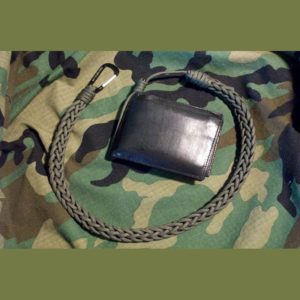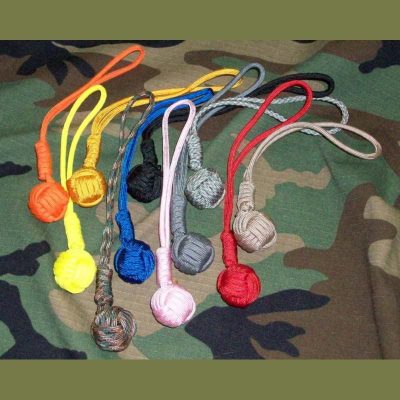Alternative Antibiotics to Have On-Hand When Prepping for a Long-Term Disaster

If you’ve been reading my preparedness posts, you’ve been stockpiling things for a while.
Planning in case of a natural or manufactured disaster (or the increasing possibility that our economy collapses): food, water purifying items, shelter and cooking supplies, weapons, security, and navigation tools is just the smart thing to do.
Survival Med Kit Basics
Heck, you even remembered to make a sizable medical kit. This could include:
Yup, you thought of everything — or have you? So what are you going to do if you get sick or get a nasty infection? You’re going to need antibiotics.
Many times preppers forget about stockpiling antibiotics. One reason is that they’ve never needed them before, so they don’t stop to consider that they could need them in the future. The other reason is simply that they don’t know where to buy antibiotics or which ones to purchase.

Having a large stash of antibiotics for a long-term disaster is not only very useful but highly vital. If something happens where we no longer have clean water or sanitation systems, electrical power, and groceries, it’ll set us back a few centuries. After that, we’ll have to re-learn how to survive independently, and infections will be a significant problem for all of us.
What about prescriptions?
Antibiotics need to be obtained via a prescription from your doctor, but your doctor will not provide you with a massive amount of prescriptions for regular antibiotics. So, how can you stock up on antibiotics? The answer is easy: go to your neighborhood pet store.
It sounds crazy, but it’s not. Most of the standard antibiotics that doctors prescribe are also utilized to maintain healthy fish in aquariums. Don’t believe it? Nearly all antibiotic medications that are used to remedy aquarium bacteria have just one active antibiotic ingredient. In many cases, it’s the same in human antibiotics — they’re even in the exact standard dosages.
It’s highly recommended that you purchase a few good updated antibiotics books. It would help if you also bought an updated family health guide like the American Medical Association’s Family Medical Guide or the Mayo Clinic Family Health Book. Why not buy them both?
The more medical books you have, the better off you’ll be when you need them in a time of crisis. It’s also greatly advised that you should do so if you have the means to get medical supplies to stockpile in case of a disaster.
Fish Aquarium Health? What?
It can’t be stressed enough that this list of antibiotics is for prepping and should be used only in catastrophic situations when medical help isn’t available.
Ciprofloxacin (Fish Flox): Great for treating respiratory infections like pneumonia or bronchitis, urinary tract infections, bacterial diarrhea, prostate infections, diverticulitis, and anthrax. When this is mixed with Fish Zole, it can help remedy infectious colitis. This shouldn’t ever be used by pregnant women, children, or nursing mothers.
Metronidazole (Fish Zole): It’s used to expel anaerobic bacteria found in the intestines. Fish Zole also treats diabetic foot ulcers, brain or lung abscesses, bacterial vaginosis, bone or joint infections, meningitis, and a few other infections. Again, this can be combined with Fish Flox to help with colitis or diverticulitis. Like Fish Flox, pregnant women, children, and nursing mothers shouldn’t take this.
Cephalexin (Fish Flex): It’s good for middle ear infections and just about any respiratory infections, such as pneumonia, bronchitis, strep throat, and others. This product is safe for children and pregnant women, and there are only a tiny amount of side effects.
Amoxicillin (Fish Mox): This product takes care of many of the same kinds of bacteria that Fish Flex does. This is not harmful to children and pregnant women and has only a few side effects. But some people are quite allergic to Amoxicillin, in which case you would need to purchase Doxycycline.
Doxycycline (Fish Cycline): This also handles middle ear infections and many respiratory infections. It’s suitable for treating Lyme disease, Malaria, sinus infections, Syphilis, Typhus, and Chlamydia. Nevertheless, children, pregnant women, and nursing mothers shouldn’t use this medication. Side effects can include sensitive skin and kidney impairment.
Sulfamethoxazole and Trimethoprim (SMZ-TMP) (Bird Sulfa): These combined treat almost all respiratory infections, yet they’re primarily used for urinary tract infections. But the great thing about this medication is that it can help treat Methicillin-resistant Staphylococcus aureus — known as resistant staph — which is a form of bacteria that proliferates and is resistant to most antibiotics.
Ampicillin (Fish Cillin): This is like penicillin but more successful against anthrax and not as likely to cause an allergic reaction. It’s also effective for urinary tract infections, respiratory tract infections, gastrointestinal infections, bacterial meningitis, and numerous other things.
What to Stock and How Much
You don’t have to stock up on all of these medicines, but at the very least, get the first three on this list. Those three antibiotics will cover nine out of the ten infections you could get.
Although it can’t hurt to have all of these medicines if you can afford them because you never know what could happen during the event of a national collapse or disaster, be sure to stock up on different dosages for each antibiotic you purchase; most of these come in 250 mg or 500 mg except for Doxycycline which is available in 100 mg.
As for storage, keep these antibiotics in the refrigerator. It’s not required, but it’ll increase their shelf life. However, do not freeze them! Freezing them can change their chemical composition, and they may not work anymore. These antibiotics could be helpful for years after they expire, except for Doxycycline, which could turn toxic if it becomes too old.
So, if things go wrong in the future, we’ll have to improvise many elements of our lives — particularly our medical care. For example, you might be nervous about ingesting aquarium antibiotics right now. Still, you don’t want to be caught without them during a catastrophe when you’re faced with a life-threatening infection, and it’s too dangerous to go out, or the stores are completely out of them. These antibiotics are inexpensive and could very well save your life or the lives of your loved ones.
Prepping means being prepared for whatever the future holds for us to be self-reliant and not have to be exposed to any dangerous situations. Keeping a small stash of the above items could very well save your life or that of someone you love.
This is not medical advice.
Always do your own due diligence, which should include running stuff like this by your primary physician.









